How to profit most from $1,000 gold: juniors and self-publicists
A word of advice on junior mining shares from AMEInfo.com,
Dubai Sunday, February 11, 2007
Whether the International Monetary fund recasts its rulebook against the manipulation of the gold market by central banks, or Chinese and speculative buyers push up the price from $666 an ounce at the close last week, there is an emerging consensus that $1,000 is a reasonable target for the yellow metal. Leveraging off this trend then ought then to be a friend indeed.
In one of his recent commentaries legendary gold investor Jim Sinclair whose timing of markets over the past 40 years has been superb, looked back briefly to some of the star investments of a previous gold boom (see www.jsmineset.com).
He mentioned a company called Durban Deep, a firm with questionable reserves that saw its stock price rise from 36 cents to $35 in 1980, and Randfontein, which did the same thing. "What is the difference between 1968 to 1980 and 2001 to 2012? The answer is: nothing!," says Mr. Sinclair.
So just who are these junior gold mining stocks? What is their business strategy?
Consider the following parallel: East European property was dirt cheap after the initial excitement of the collapse of communism fell away; then a few bright individuals bought up this real estate; later these states joined the European Union and small property speculators drove the prices up, leaving those original buyers rich.
Junior gold mining companies have done the same thing with gold. They bought up gold mining claims at low prices some years ago before the price of gold really took off. Now these companies are sat on potential gold reserves that are worth many times what they paid for them.
As yet the share price of many junior mining companies still does not reflect the recent upward movement in the gold price. It is not uncommon to find these shares trading at a price that has hardly changed in two years despite the $200-plus increase in the gold price to $666 an ounce.
But how do you pick the winners among these stocks? Whom should you choose to invest in? This section of the stock market is under-researched, and the stock-tipping websites often recommend shares in which they have quite openly taken an interest.
One simple criterion is to select the best self-publicists. Who is marketing their company best? Whose adverts appear most on the specialist websites like www.GoldSeek.com or www.Gold-Eagle.com?
It is not just that effective marketing is likely to be a clue to competent general management, although many times it probably is such a guide. It is more a question of isolating which shares are most likely to gain public attention in a junior gold stock boom.
As we know from the dot-com boom days, the public is not a very discriminating buyer, and an analysis of the fundamentals of stocks usually goes out of the window in a boom period. But what is important is an ability to capture the public mood and imagination.
And the junior gold companies that are doing this now are also the most likely to succeed in doing it then. So buy the best self-publicists today to sell when the gold price booms.
* * *
Dubai Sunday, February 11, 2007
Whether the International Monetary fund recasts its rulebook against the manipulation of the gold market by central banks, or Chinese and speculative buyers push up the price from $666 an ounce at the close last week, there is an emerging consensus that $1,000 is a reasonable target for the yellow metal. Leveraging off this trend then ought then to be a friend indeed.
In one of his recent commentaries legendary gold investor Jim Sinclair whose timing of markets over the past 40 years has been superb, looked back briefly to some of the star investments of a previous gold boom (see www.jsmineset.com).
He mentioned a company called Durban Deep, a firm with questionable reserves that saw its stock price rise from 36 cents to $35 in 1980, and Randfontein, which did the same thing. "What is the difference between 1968 to 1980 and 2001 to 2012? The answer is: nothing!," says Mr. Sinclair.
So just who are these junior gold mining stocks? What is their business strategy?
Consider the following parallel: East European property was dirt cheap after the initial excitement of the collapse of communism fell away; then a few bright individuals bought up this real estate; later these states joined the European Union and small property speculators drove the prices up, leaving those original buyers rich.
Junior gold mining companies have done the same thing with gold. They bought up gold mining claims at low prices some years ago before the price of gold really took off. Now these companies are sat on potential gold reserves that are worth many times what they paid for them.
As yet the share price of many junior mining companies still does not reflect the recent upward movement in the gold price. It is not uncommon to find these shares trading at a price that has hardly changed in two years despite the $200-plus increase in the gold price to $666 an ounce.
But how do you pick the winners among these stocks? Whom should you choose to invest in? This section of the stock market is under-researched, and the stock-tipping websites often recommend shares in which they have quite openly taken an interest.
One simple criterion is to select the best self-publicists. Who is marketing their company best? Whose adverts appear most on the specialist websites like www.GoldSeek.com or www.Gold-Eagle.com?
It is not just that effective marketing is likely to be a clue to competent general management, although many times it probably is such a guide. It is more a question of isolating which shares are most likely to gain public attention in a junior gold stock boom.
As we know from the dot-com boom days, the public is not a very discriminating buyer, and an analysis of the fundamentals of stocks usually goes out of the window in a boom period. But what is important is an ability to capture the public mood and imagination.
And the junior gold companies that are doing this now are also the most likely to succeed in doing it then. So buy the best self-publicists today to sell when the gold price booms.
* * *
Labels: gold, J.Sinclair, mining















![[Most Recent Quotes from www.kitco.com] [Most Recent Quotes from www.kitco.com]](http://www.kitco.com/images/live/t24_au_en_usoz_6.gif)
![[Most Recent Quotes from www.kitco.com] [Most Recent Quotes from www.kitco.com]](http://www.kitco.com/images/live/au_go_0030_ny.gif)
![[Most Recent Quotes from www.kitco.com] [Most Recent Quotes from www.kitco.com]](http://www.kitco.com/images/live/au_go_0365_ny.gif)
![[Most Recent Quotes from www.kitco.com] [Most Recent Quotes from www.kitco.com]](http://kitconet.com/charts/metals/silver/t24_ag_en_usoz_4.gif)




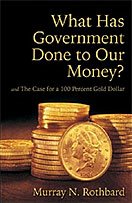

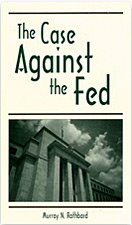
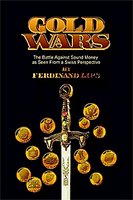


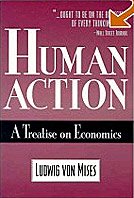
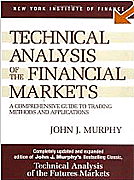
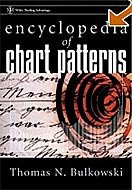




0 ΣΧΟΛΙΑ (COMMENTS):
Post a Comment
<< Home